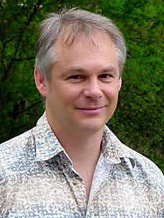Steven A. Kautz, Ph.D.
Associate Professor of Physical Therapy
College of Public Health and Health Professions
2009 Awardee
 Steven Kautz leads an internationally known multidisciplinary research program combining theoretical and experimental studies of the control of locomotion, functional biomechanics, and clinical neurorehabilitation with the goal of improving walking in persons with neurological disorders. The primary focus of his research program is to develop fundamental concepts related to walking performance, its measurement and its rehabilitation.
Steven Kautz leads an internationally known multidisciplinary research program combining theoretical and experimental studies of the control of locomotion, functional biomechanics, and clinical neurorehabilitation with the goal of improving walking in persons with neurological disorders. The primary focus of his research program is to develop fundamental concepts related to walking performance, its measurement and its rehabilitation. Kautz’s research program includes a strong emphasis on integrating novel experiments and detailed dynamical musculoskeletal model based analyses. The central tenet of his research is that an understanding of neural control principles applicable to human locomotion cannot be developed unless the complex task biomechanics are understood thoroughly. Therefore, Kautz’s research relies on developing detailed dynamical models and analyses hand-in-hand with experiments.
Kautz’s experimental studies have also answered fundamentally important questions in hemiparetic motor control. In one important example, he used a very novel experimental paradigm to demonstrate that activation of the non-paretic leg can exacerbate impairment of paretic leg activity during bilateral tasks. This novel finding has substantial implications for the design of rehabilitation interventions because it suggests that the influential approach focused on task performance may be counterproductive in certain individuals. This work, published in the Journal of Neurophysiology, suggests that more sophisticated assessment of subjects based on the severity of their hemiparesis and the specific nature of the motor impairment is needed.
Kautz’s research program is highly creative in the application of fundamental biomechanical and motor control principles to develop objective quantitative measures of human function, which provide fundamental new information for a broad range of questions related to neurological function, injury, disease and treatment. As a result, new frameworks for the measurement and interpretation of human function and its relationship to neurological pathology and neurorehabilitation have been developed.

